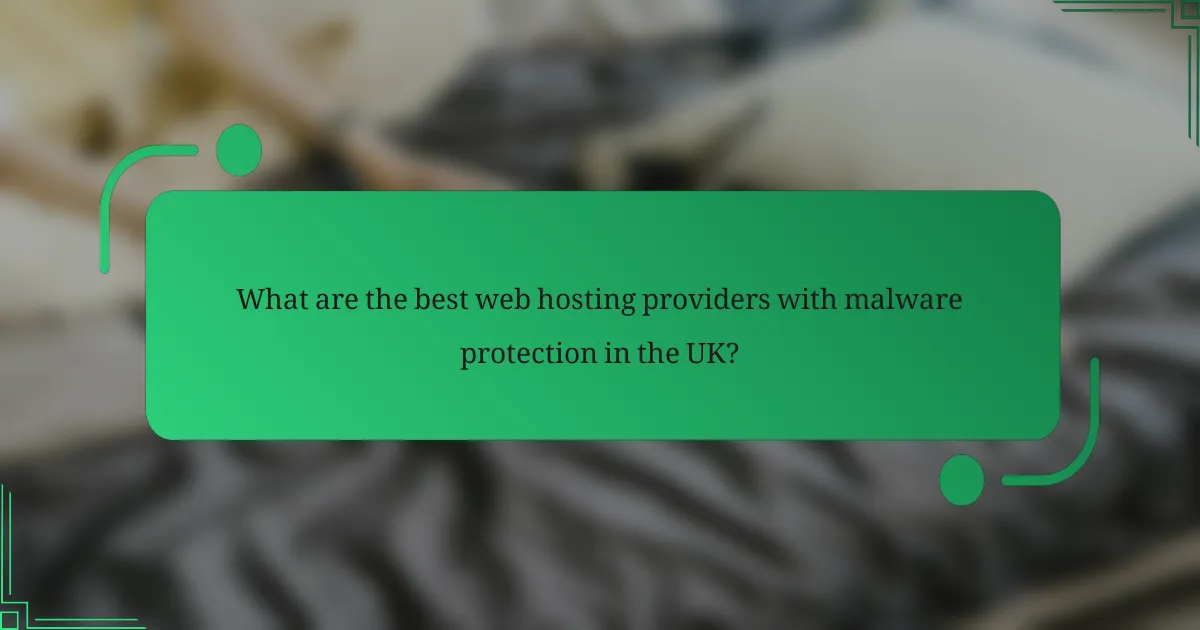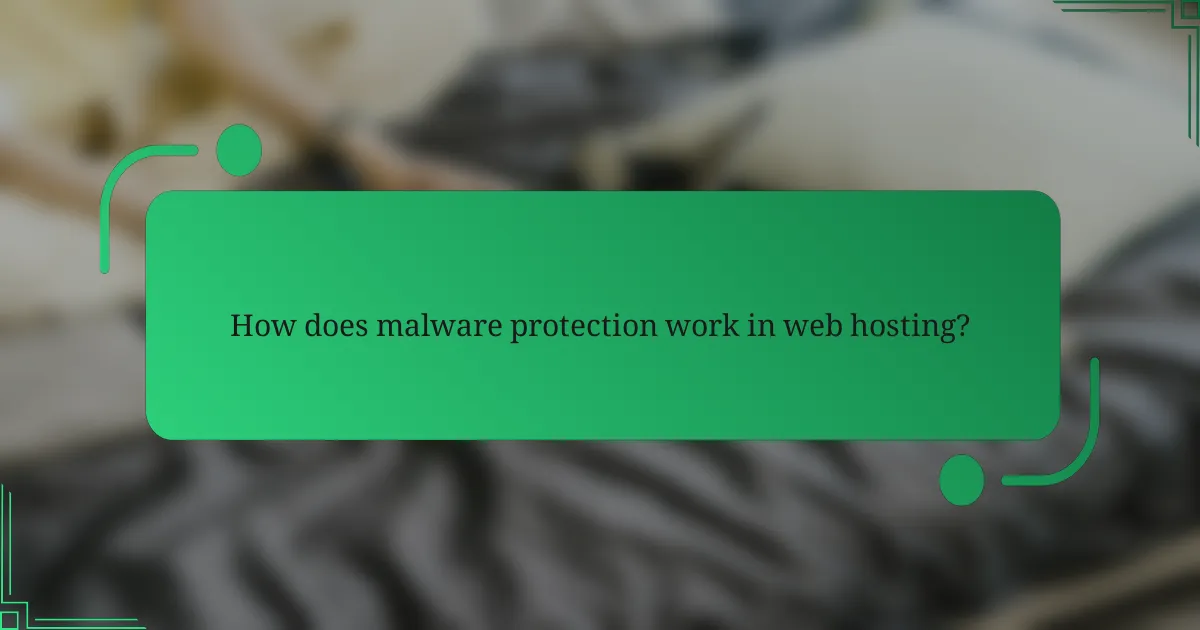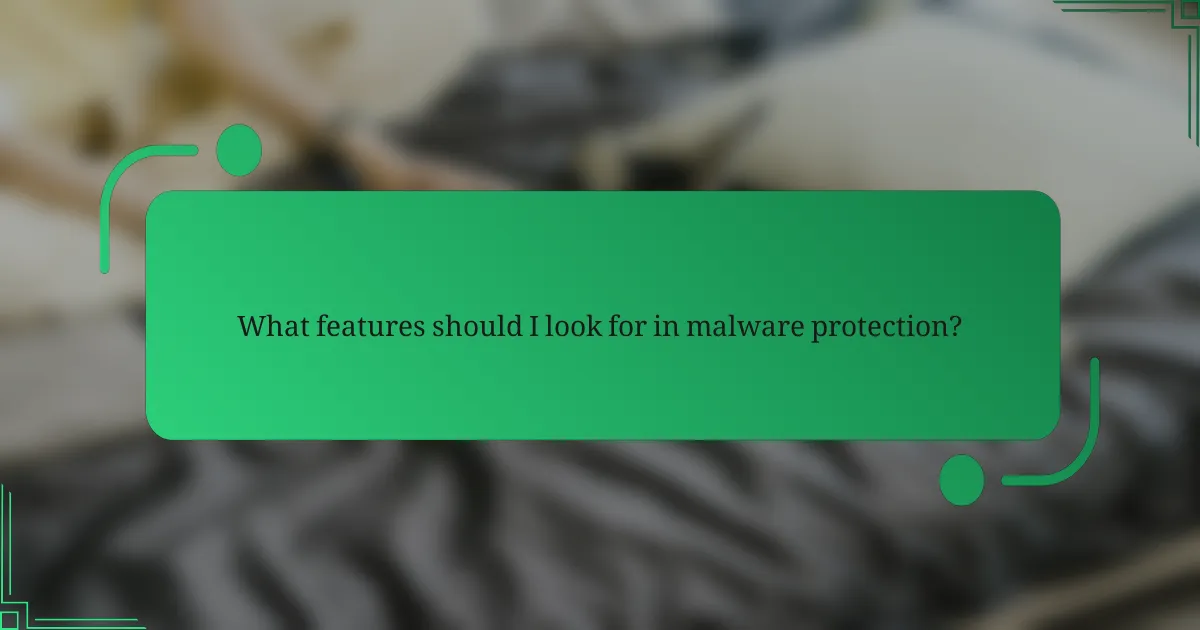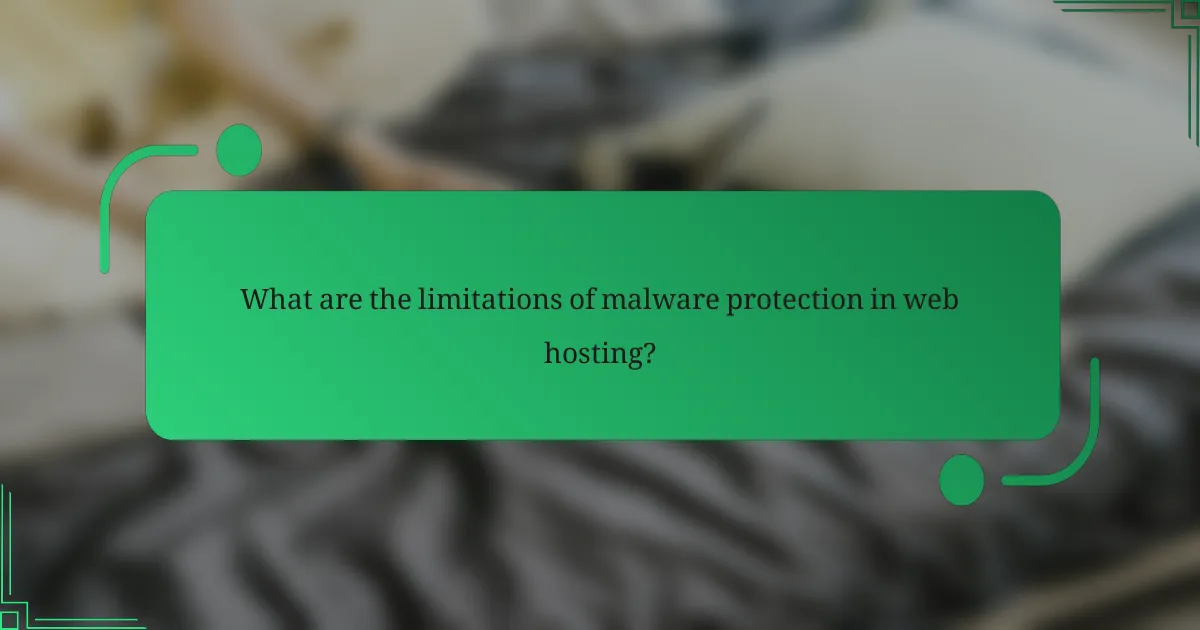When selecting a web hosting provider in the UK, it’s essential to consider the malware protection options they offer to safeguard your website. Leading companies like SiteGround, Bluehost, and Hostinger provide a range of security measures, including real-time scanning and automated backups, to protect against malicious threats. Evaluating features such as scanning frequency and customer support can help ensure your site remains secure and operational.

What are the best web hosting providers with malware protection in the UK?
Several web hosting providers in the UK offer robust malware protection features, ensuring your website remains secure from threats. Key players include SiteGround, Bluehost, Hostinger, UK2.net, and Fasthosts, each providing various levels of security measures and support.
SiteGround
SiteGround is renowned for its strong security protocols, including proactive malware protection. They employ a combination of AI-driven tools and manual checks to detect and eliminate threats before they impact your site.
Additionally, SiteGround offers daily backups and a web application firewall (WAF), which helps to shield your website from common vulnerabilities. Their customer support is also highly rated, providing assistance with security issues whenever needed.
Bluehost
Bluehost provides essential malware protection features as part of its hosting packages. Their security suite includes automatic updates and a comprehensive firewall to help prevent attacks.
Moreover, Bluehost offers a SiteLock feature that scans your website for malware and vulnerabilities, ensuring that any issues are addressed promptly. Their user-friendly interface makes it easy for users to manage their security settings.
Hostinger
Hostinger includes malware protection as part of its hosting plans, focusing on affordability without compromising security. They provide a built-in security system that monitors your site for malicious activity.
Hostinger also offers regular backups and a free SSL certificate, which enhances your site’s security. Their support team is available to assist with any security-related queries, making it a solid choice for budget-conscious users.
UK2.net
UK2.net offers a range of security features, including malware protection, as part of its hosting services. Their plans include regular security scans and updates to keep your website safe from emerging threats.
Additionally, UK2.net provides a backup service that ensures your data is secure and recoverable in case of an attack. Their customer support team is knowledgeable and can help you navigate any security concerns.
Fasthosts
Fasthosts includes malware protection in its hosting packages, focusing on keeping your website secure. They offer a variety of security tools, including firewalls and malware scanning services.
Fasthosts also provides a backup solution to safeguard your data, ensuring that you can restore your site quickly if needed. Their support team is available to assist with any security issues, making them a reliable option for UK users.

How does malware protection work in web hosting?
Malware protection in web hosting involves various techniques to detect, prevent, and remove malicious software from websites. Key methods include real-time scanning, firewall implementation, and automated backups, which collectively help maintain website security and integrity.
Real-time scanning
Real-time scanning continuously monitors your website for malware and other security threats. This process typically involves scanning files and scripts as they are uploaded or modified, allowing for immediate detection of any suspicious activity.
Many hosting providers offer automated scanning tools that can identify common vulnerabilities and malware signatures. Regular scans can help ensure that your website remains secure, but it is essential to choose a service that updates its malware definitions frequently to stay ahead of new threats.
Firewall implementation
A firewall acts as a barrier between your website and potential threats from the internet. By filtering incoming and outgoing traffic, firewalls can block malicious requests and prevent unauthorised access to your site.
When selecting a web hosting provider, look for those that offer robust firewall solutions, such as Web Application Firewalls (WAFs). These can provide an additional layer of security by specifically targeting web-based attacks, which are increasingly common.
Automated backups
Automated backups are crucial for recovering your website in case of a malware infection. These backups create copies of your website’s data and files at regular intervals, allowing you to restore your site to a previous state if necessary.
Choose a hosting provider that offers daily or weekly automated backups, ensuring that you can quickly recover from any incidents. Additionally, verify that backups are stored securely and are easily accessible, as this can significantly reduce downtime and data loss during a malware attack.

What features should I look for in malware protection?
When evaluating malware protection for web hosting, focus on features like scanning frequency, response time to threats, and customer support availability. These elements are crucial for ensuring your website remains secure and operational in the face of potential attacks.
Malware scanning frequency
Malware scanning frequency refers to how often your hosting provider checks for malicious software on your site. Regular scans, ideally daily or even multiple times a day, help identify threats before they can cause significant damage.
Consider providers that offer real-time scanning as it can detect and neutralise threats instantly. If your website handles sensitive data, more frequent scans may be necessary to maintain security.
Response time to threats
Response time to threats is critical in minimising the impact of malware. A good hosting provider should have a rapid response protocol, ideally addressing threats within minutes of detection.
Look for services that offer automated responses, such as quarantining infected files or blocking malicious IP addresses immediately. This proactive approach can significantly reduce downtime and data loss.
Customer support availability
Customer support availability is essential for resolving malware issues quickly. Choose a hosting provider that offers 24/7 support through multiple channels, such as live chat, phone, and email.
Responsive customer support can guide you through remediation steps and provide advice on enhancing your site’s security. Check reviews to ensure that the support team is knowledgeable and effective in handling malware-related concerns.

How much does malware protection cost with web hosting?
The cost of malware protection with web hosting can vary significantly based on the hosting provider and the level of security offered. Generally, basic malware protection is included in many hosting plans, while more comprehensive options may incur additional fees.
Included in hosting plans
Many web hosting providers include basic malware protection as part of their standard hosting packages. This typically covers automatic scans and removal of common threats, ensuring a level of security without extra costs. However, the effectiveness of these included services can vary, so it’s essential to review the specifics of what is offered.
For instance, some providers may offer daily scans and real-time monitoring, while others might only provide periodic checks. Understanding the details of what is included can help you assess whether it meets your needs.
Additional subscription fees
For enhanced malware protection, many hosting companies offer additional subscription services that come with a fee. These services often include advanced features such as firewall protection, proactive threat detection, and dedicated support for malware incidents. Prices for these add-ons can range from low tens of pounds to higher amounts depending on the level of service.
Before opting for additional fees, consider the potential risks to your website and whether the extra protection justifies the cost. It’s wise to compare different providers and their offerings to find the best value.
Free vs paid options
Free malware protection options are available, but they often come with limitations in terms of features and support. While they may be sufficient for smaller websites, larger or more complex sites may benefit from paid options that provide comprehensive coverage and faster response times.
Paid options typically offer more robust protection, including regular updates, advanced threat detection, and dedicated customer support. Weighing the pros and cons of free versus paid options can help you make an informed decision based on your specific needs and budget.

What are the limitations of malware protection in web hosting?
Malware protection in web hosting is crucial but comes with limitations that users should understand. These limitations can affect the effectiveness of security measures and the overall safety of hosted websites.
False positives
False positives occur when malware protection mistakenly identifies legitimate files or activities as malicious. This can lead to unnecessary disruptions, such as blocking access to essential website components or even taking sites offline.
Web hosts often use automated systems to scan for malware, which can result in a higher rate of false positives. For instance, a security plugin might flag a common script as harmful due to its behaviour, causing confusion for site owners.
To mitigate the impact of false positives, regularly review your security logs and settings. If a legitimate file is flagged, consider whitelisting it or adjusting your security settings to reduce the likelihood of future misidentifications.